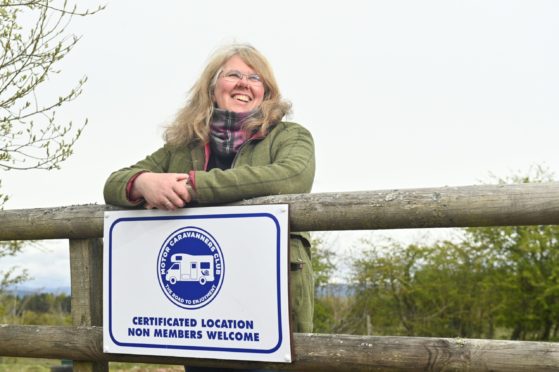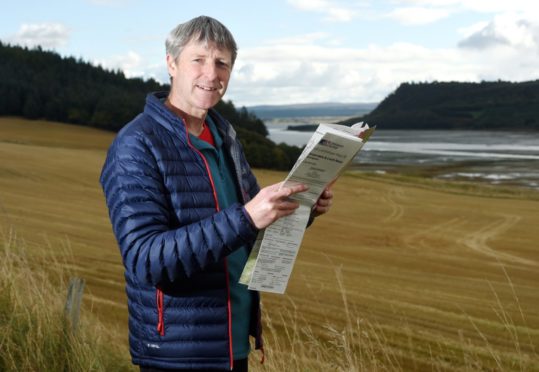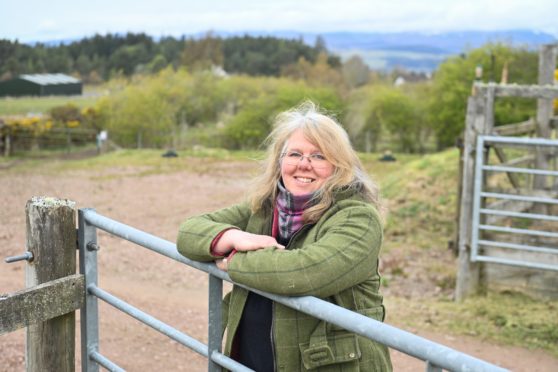The concept of French-style aires as a low-cost, practical option to create more room for visiting motorhomes across the Highlands is catching on with crofters and landowners.
Aires are places to park and stay overnight in a motorhome, caravan or campervan, either for free or at a low cost, and are popular and widespread in France.
After the council promoted the idea of dotting them around the region last October, dozens of interested community groups, landowners, farmers, crofters and individuals with land to spare contacted the authority expressing interest.
Tourism officer Colin Simpson said: “Within days we had more than 30 people interested in setting them up.
“They came from Lochaber and Skye, but most were in the northern Highlands, North Coast 500 territory.”
Things slowed down as Mr Simpson and his team were delegated to work on dispensing Covid business grants until last week.
But the momentum is building again, with potential aire owners now looking for guidance on what they need to provide.
Mr Simpson said the concept of aires is challenging for planning and licensing purposes, because they don’t exist in a legal sense.
“Although an aire is a well-known term to motorhome users and the like, the law doesn’t define it as being anything different from a campsite in terms of planning and regulations.
“So we need to find a way for small scale sites, accommodating five vehicles or fewer, to be able to do things without having to comply with different bits of legislation.
“There’s no ambition here to create more full-blown campsites as such.”
‘We should be welcoming all our visitors’
Mr Simpson said motorhomes should not be seen as a problem, but an opportunity.
“The underlying principle to me is that we should be welcoming all our visitors to the Highlands however they travel, motorhomes being one way of them coming here, so rather than seeing them as a problem we should be recognising what they need and trying to provide that better.
“If, at the same time as providing that, we can create a commercial opportunity for local businesses, that’s even better.
“By providing these sites in some cases quite close to communities there’s also the opportunity to catch some spin-off benefit from that in pubs, restaurants and shops.
“The difficult bit for us right now is pruning the legislation down because as a council we want to encourage people to be able to provide facilities without too many hoops to be gone through.
“But we’re also conscious that we don’t want it to be a bit of a free for all where people start tarmacking bits of grass and chopping down trees, and doing things that make the area less appealing to people.”
Challenging experience for Black Isle family
This season sees the Richmond family’s Black Isle Stud Motor Home and Campervan Park- a three-berth aire- now entering its second year, but not without a prolonged red tape tussle to get retrospective planning permission.
The family runs a stud on the less-travelled northern side of the Black Isle at Mounteagle, and had a bit of extra space at the entrance.
When friends visited last summer with a campervan, they pointed out the space and suggested they could easily get three vans there.
Becky Richmond, who is chairwoman of the Black Isle Tourism Team and in normal years runs guided tours of the area, said: “They asked, ‘why don’t you provide a stopover?’
“It’s literally at the bottom of our drive, next to a single track road, and I didn’t really think campervans would want to come.
“But a couple of days later I was on a call with North Highland Initiative and North Coast 500 who were saying it would be great if somebody would encourage landowners to open up a wee bit of land to take in two or three vans, and if there’s waste disposal that would be brilliant, but just to get the vans off the road and get them somewhere legal that they could park which would keep the campers happy, and also the communities.”
Inspired, Becky looked into the legislation to find out what they needed to do, and nearly drew a blank.
“Eventually I discovered that for 28 non-consecutive days we could have a maximum of three vans here”, she said.
“We have a septic tank, so we adapted it and it was very easy for vans to just empty their green waste, or untreated waste, which a lot of owners are doing now in case they don’t find suitable disposal points.
“We put in water hook-ups and we organised for the collection of take-aways from the pub which we’d go down and bring back so that we kept the vans off the road, but also it supported the pub and the local shop.”
The Richmonds charged £15 a night, which they found the van owners were happy to pay, and last year’s experiment went well, with people coming and extending their stay for another night or two.
Becky said: “At the same time we carried on looking into what we needed to do in order to be able to continue doing that this year.
“I couldn’t find anything on the council’s website anywhere, so I emailed planning looking for advice.
“They wanted to charge us for giving their advice which I wasn’t happy about.”
Becoming a certified location
Eventually the Richmonds used a service by the Motor Caravanners’ Club to liaise with Highland Council so that their aire could become a certificated location.
“They contacted the council who said they were happy with where we wanted to take in the vans, and they would allow us to take in five, rather than three.
“They were happy with the hardstanding and grass, but not with the septic tank because we hadn’t applied for planning permission for it.
“So we pointed out to them that we had had it in since 1998, so most definitely planning permission had gone in for that.
“They said even so we couldn’t use it because the chemicals are damaging to the septic tank.
“Eventually Scottish Water said green waste and no-chemical waste would be acceptable and they would come and empty the tank and deal with it.
“They said for the number of vans we were going to have per year it wouldn’t do our septic tank any harm whatsoever.
“At that point the council planners had no further comment and said they were happy with everything.”
Thanks to the Motor Caravanners’ Club efforts, costing £25, the Richmonds’ aire is now a certificated location.
The regulations covering it are the same as for pavement cafes, which can be put out for 28 non-consecutive days in Scotland without planning permission.
Becky said: “In England they’ve extended it to 56 days without planning permission, and we’re hoping the Scottish Government will also extend it.”
The Richmonds promote their site on a number of apps, and use pitchup.com as their booking agency.
Becky has put together a detailed description of what to do locally and the facilities, and attracted good reviews last year.
“Everybody loved it, and I was really surprised. The bottom of our drive is fairly basic, although it’s a nice area, but people arrived, got out their deck chairs and barbecues.
“We made rules like no music, we don’t take single sex groups, so that we know we’re not likely to upset out neighbours, and within the village most people liked it.”


